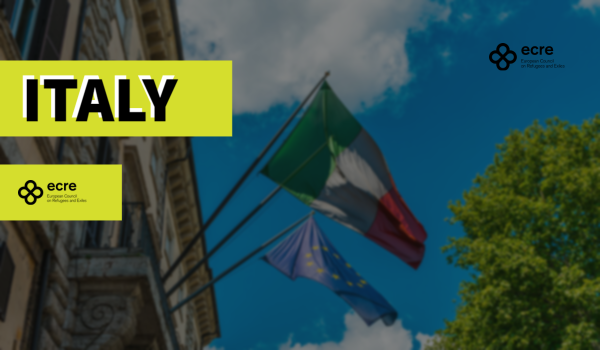Italy convened an international conference with Mediterranean and Middle East states, EU leaders and international organisations to address irregular migration as the far-right leader seeks to bring migrant workers from countries with which Italy has readmission agreements.
Italy hosted on 23 June an international conference involving more than 20 Mediterranean and Middle East states, as well as EU leaders and international organisations to address some of the causes of “irregular migration flows” including combatting trafficking and strengthening economic development. The one-day conference is Prime Minister Georgia Meloni’s initiative aiming “to make Italy a leader in resolving issues impacting Mediterranean nations”. During the conference, the far-right leader called for a new, more equal relationships between Europe and migrants’ countries of origin and transit. “Until yesterday, we had the mentality that said migration cannot be limited, it is a right, borders don’t exist. That is not my approach because borders exist, migration must be managed,” Meloni said during the conference. The conference concluded with an agreement to launch the “Rome Process” that is supported by the United Arab Emirates (UAE) with 100 million USD and is expected to pave the way for similar deals to the one struck by the EU with Tunisia. While the Commission President Von der Leyen and Commission vice president Margaritis Schinas praised Italy’s migration efforts including the “very intense” work to finalise the “blueprint” with Tunisia, the conference has been seen widely criticised. Journalist David Carretta sees it as a form of EU support to “some autocrats with the blessing of Charles Michel and Ursula von der Leyen” and Collective Refugees in Libya said that the conference organisers “have no respect for human rights”, adding that the “Mediterranean should not be a graveyard, it also should not be used as a Europe’s shield but an open space where trade of exchange take place in the interest of a people”. Human Rights Watch also stated through such a meeting, “the EU risks not only perpetuating them but also emboldening repressive rulers, who can brag about warmer relations with European partners while claiming credit for securing financial support for their failing economies”. Commenting on the conference’s slogan “Rome Process to Address the Root Causes of Irregular Migration”, journalists from the Libyan News Agency (WAL) argued migration won’t stop until the “real drivers” are addressed, “including Western corporate exploitation of Africa’s vast mineral and natural wealth, stifling technology transfer, and blocking major development projects like the Great Green Wall across the Sahel and utilizing the Congo River”.
As Meloni seeks to prevent arrivals to Italy, the PM is also seeking to bring half a million migrants in the next three years to cover the acute labour shortage, particularly in the fields of agriculture, tourism and hospitality in an attempt to moderate her xenophobic rhetoric shortly after taking office last October when she said that she “had nothing against legal immigration – she only wanted to fight illegal immigration and the gangs of smugglers”. Under this new decree, the far-right leader aims to “reward” the – few – countries of origin with which her country has long had bilateral readmission agreements for irregular migrants, namely Tunisia, Morocco and Ivory Coast. “Meloni also wants to demonstrate to the other countries of origin that it is worthwhile to conclude a readmission agreement with Italy or ideally with the whole EU”. Meanwhile, the European Commission announced on 18 July the allocation of 14 million euros to ensure “swift and safe transfers” to those arriving in Lampedusa to mainland reception facilities while regional governments are calling for more engagement with the federal government on decisions concerning migrant relocation and reception. Reportedly and after months of Italy’s request for funds to “manage migration”, the financial support will be “assigned to the International Organization for Migration (IOM), which will work “in close coordination” with the Italian authorities and with the European Union Agency for Asylum (EUAA)”.
For further information:
- ECRE, Mediterranean: Increased Arrivals to Italy Amid Reports of Prison-Like Reception Conditions, 40 People Missing After Another Shipwreck, Ongoing Abuses by EU-Funded Libyan Coast Guard, Malta’s “Criminal Behaviour” Towards People in Distress Exposed Again, June
- ECRE, Mediterranean: Ongoing Arrivals and Deaths Amid Negotiations Between Tunisia and EU Officials for “Better Border Control”, Maltese Prime Minister Renews Calls for Joint Cooperation to “Combat Migration” As Accusations by NGOs of Pushbacks & Non-Response Tactics Mount Up, Abuses by Libyan Coast Guard Continue, June

